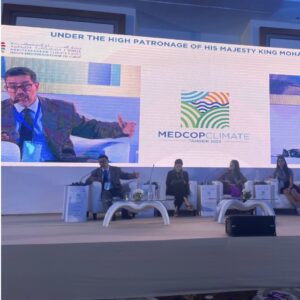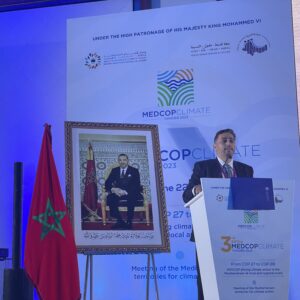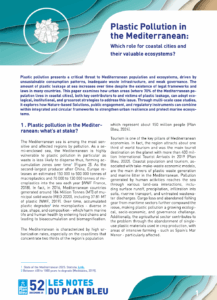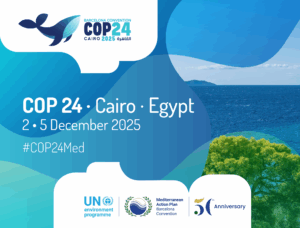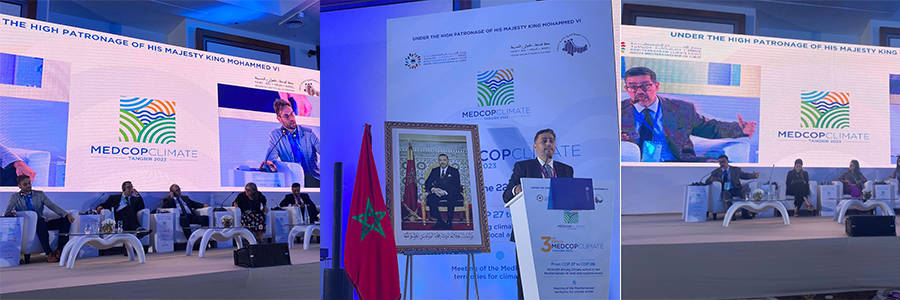On June 22-23, 2023, MEDCOP Climate “From COP27 to COP28: driving climate action in the Mediterranean at the local and regional levels” took place in Tangier, Morocco. This third edition was organised by the Mediterranean Climate House Foundation Tangier and the Tangier-Tetouan-Al Hoceima Region.
This meeting brought together Mediterranean territories to catalyse climate action and engage ministries, public organizations, donors, companies, territories and NGOs to address the various challenges encountered by the Mediterranean in light of the worsening impacts of climate change. Over two days, more than 500 participants convened to discuss these challenges, and to collectively reflect on how to achieve integrated approaches to advance climate change mitigation and adaptation while advocating for decentralized and concerted actions powered by local governments on all of the Mediterranean’s shores. 36 nationalities were represented, including eminent decision-makers, researchers, civil society representatives and experts and on climate and environmental issues.
MEDCOP Climate notably zoomed in on Resilient Cities and Territories, Sustainable Food Systems, Sustainable Water Management, the Energy Transition, Gender and Climate, Nature-Based Solutions, Climate and Human Mobility and Climate Finance. Visit MEDCOP 3’s website to learn more about this regional event.
Union for the Mediterranean (UfM) and Plan Bleu/RAC (UNEP/Mediterranean Action Plan) co-organized Hub 3 on the Sustainable Management fo Water Resources”. The first session was opened by Mr. Almotaz Abadi, UfM’s Deputy Secretary General and Ms. Olfat Hamdan, Coordinator of the GEF MedProgramme at UNEP/Mediterranean Action Plan. It focused on the Water Energy Food Ecosystems Nexus and Integrated Coastal Zone Management, was and moderated by Michael Karner, Project Manager at Plan Bleu. It was followed by a second session on the Source to Sea Approach and the Blue Economy, and was moderated by Mr. Frédéric de Dinechin, Senior Policy Advisor at UfM.
The Hub on Sustainable Water Management ws able to provide some concrete recommendations on how to better support local governments through more integrated approaches and adapted financial models, while informing their work with reinforced Science-Policy Interfaces, in order to ground decision-making and policies in scientific results and approaches.
